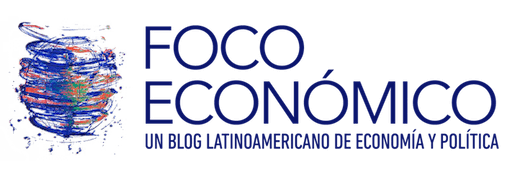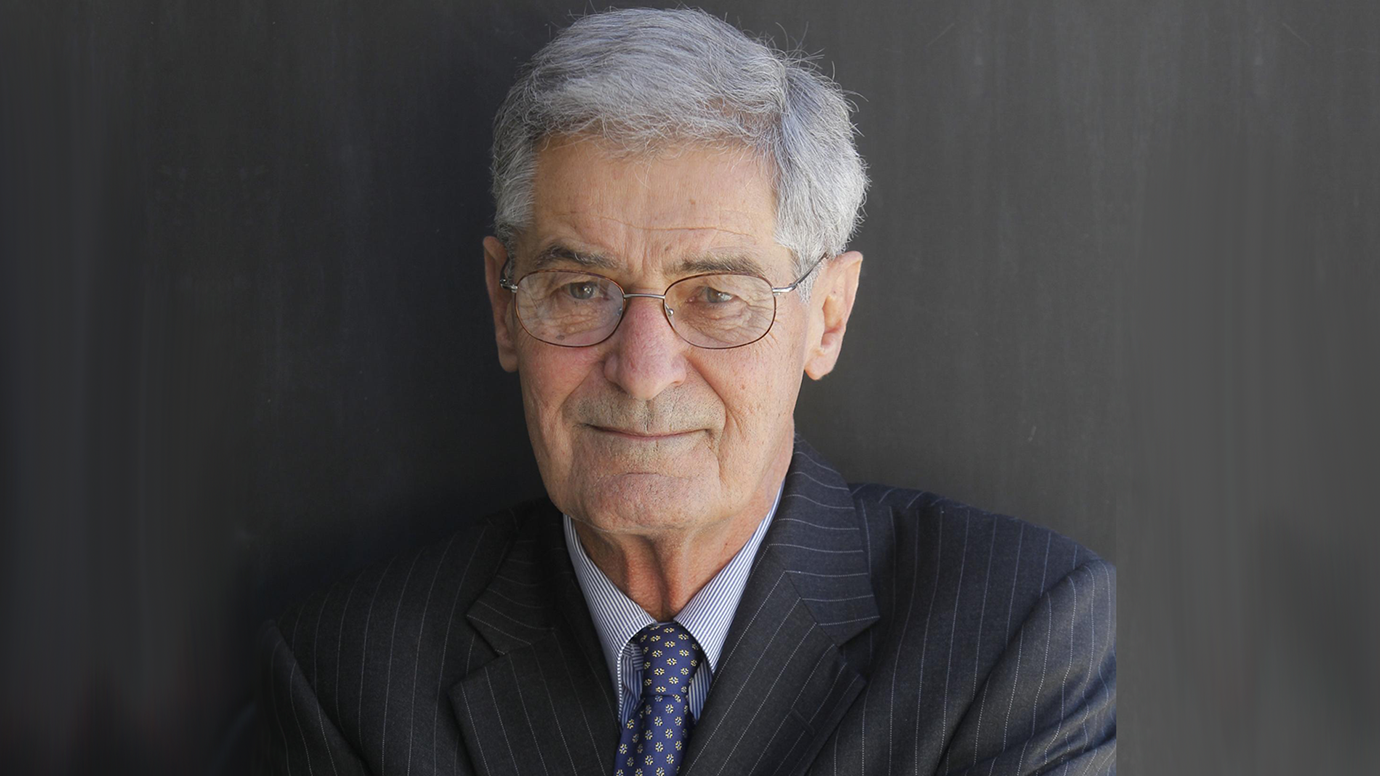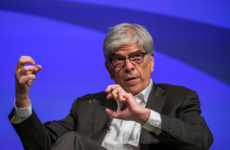El miércoles 8 de noviembre la Universidad Torcuato Di Tella, a pedido del Departamento de Economía, declaró a Julio Rotemberg Doctor Honoris Causa por sus valiosas contribuciones al estudio de la Macroeconomía. A manera de homenaje, publicamos aquí las palabras dirigidas por Fernando Alvarez en esa ocasión.
Equipo Foco Económico.
Remarks on the ceremony awarding an honorary degree from the UTDT to Julio Rotemberg
By Fernando Alvarez
I have the honor and pleasure to give few words about Julio’s contribution to economics, in reference to the honorary degree awarded by the Universidad Torcuato Di Tella.
This is typically an occasion to celebrate the work of the recipient.
And even more if one knows the honoree personally, admired him not only for the quality of his scholarship, but for his intellectual fierceness, independence, and honesty. In my case this feeling is augmented by personal debt for his guidance, encouragement, and for the opportunities that Julio gave me. Of course, in this case, this celebration is mixed with very deep sadness due to Julio’s untimely death.
I will like to center my brief remarks on two points.
The first one is that even though Julio’s contributions are wide ranging, I think of Julio as a “pure” macroeconomist at heart –and I view that as compliment! His work either addressed directly some of the core questions in macroeconomics, or it was motivated by the understanding of key features that makes macroeconomic a different branch of economics.
The other point I will like to stress is Julio’s creativity, intellectual curiosity, and totally disregard for whatever was deemed to be a “hot” topic in his choice of research questions and methods. Intellectually Julio was very much its own man, working on topics that, at the time he was researching them, may have not been mainstream, but with due time they have become so, and are appreciated to be important for the central questions in macroeconomics that he was interested.
On the first point, it is well known that Julio had a central interest on the study of nominal rigidities, and in particular on the modeling and implications of nominal price stickiness.
The effect of monetary policy, and in particular the lack of immediate and proportional response of prices to monetary disturbances is one of the central questions in macro, and many of the key figures of our profession have tackled it, starting with David Hume, John Maynard Keynes, Milton Friedman, and Bob Lucas. Julio has an important body of work on this central question, but especially two of his papers are noteworthy. The first is his JPE paper, where “Rotemberg” sticky prices were born, and where Julio produced a modern (i.e. rational expectations, utility maximizing, microfounded, and not subject to the Lucas critique) small scale macro model. This model is used to evaluate the importance of monetary shocks on US business cycles fluctuations. The second one is his paper with Mike Woodford in the macro-annual. There they develop the core of what has become known as the Neo-keynesian macro model.
Interestingly this work also borrows from other recipient of a Di Tella honorary degree, Guillermo Calvo –as updated by Tuck Yun’s thesis insights, in the microfoundations of price stickiness for the Phillips curve. The simple set-up incorporates in a tractable way permanent income (hence the Neo in Neo-keynesian as opposed to plain, or paleo Keynesian), and produces the neoclassical synthesis, i.e. the model is neoclassical in its long run behavior or, as it turns out for middle size versions, the model has RBC behavior in the long run, or even more precisely for those inside our field, the model displays the so called “divine coincidence”. Additionally, monetary shocks are modeled in a realistic and simple fashion, which agrees with the time series developments on identification of monetary shocks. This is an incredibly important paper, which is no big insight of my part, since it is widely recognized to be so.
But beside the substantive importance of these two papers, I will like to highlight how Julio was determined to explore ideas related to nominal rigidities, working on them during the height of the RBC revolution. As examples of other early work on nominal rigidities Julio contributed to the characterization of Sheshinsky and Weiss type of menu cost models, and also to the measurement of the degree of nominal wage rigidity using the lack of equivalence on taxes levied on workers and firms.
Julio has worked on altruism and behavioral consumer models, and applied them to several questions. Julio’s work on this area was done way before it was fashionable to do so, giving another proof of its independence of mind and fine taste on methods and problems. But looking at this work, and at frequency of particular applications, I think that the main reason for Julio’s interest on it was the understanding of downward price rigidity, and in particular to go beyond the mechanical reason behind the Calvo or Rotemberg price setting mechanism. I think of this as a great example Julio scholarly behaviour, which instead of merely “defending” an incredibly successful idea, criticizes it and pushes beyond it.
Incidentally, Julio quotes stylized facts on the insensitivity of price changes as motivation for the particular application of altruism, with the understanding that traditional price setting models will be unable to reproduce such behavior –this is related to, and explains his interest in the Sheshinsky-Weiss type of menu cost models.
Another example of work that is important on its own, but that I believe Julio developed for its clear macroeconomic implications as sources and propagations of business cycles, is his work on imperfect competition, and in particular the dynamics of markups, and the sustainability of them depending on demand conditions. Since Ivan[1] talk is related to this topic, I will not expand into Julio’s body of work on this area.
To summarize, in these cases, Julio managed to make important contributions to different areas, and simultaneously bring tools, concepts, and new results to mainstream macro. I think his intellectual independence was a very important factor to achieve that. Of course, being extremely smart did not hurt.
Let me come back to the second topic announced above. Julio broke new ground in several areas, but he did not stay working on these areas, cultivating many followers, expanding the ideas incrementally. Instead, he moved on to new topics, back again to the trenches, where hits but also misses are likely, but where the small chance of home runs also lies. In my opinion, this was a mark of Julio’s intellectual curiosity, one of Julio more admirable character treats.
Let me finish with few personal remarks. I did my undergrad in Argentina, and my graduate work in Minnesota. My first job was at Penn, and in less than two years I move to Chicago. In sum, I was as much as fresh-water type as it comes. As a result, I did not have any direct ties with Julio. But my first published paper after graduation, joint with Andy Atkeson, was on a topic started by the independent work of Julio and Sandy Grossman, the liquidity effect on interest rates of monetary shocks. Indeed, the title of our paper includes Julio’s last name on it.
While we obviously liked the general idea of his paper, our contribution was critical of Julio’s implementation. Yet he was still very supportive of our work.
He was also very generous inviting me to write a chapter in the macro annual as a first year assistant, and assigning us a very senior discussant. Later on he was also quite supportive of joint work with Andy Atkeson on exchange rates –other area that Julio had worked on.
For instance, while we got some criticism for some admittedly extreme assumptions, Julio will refer to them in the EFG meeting discussion, one of the main occasions for macro talks, as being “liberating”, taking lots of pressure from us. This was typical behavior from his part. My impression is that as long as Julio perceived a junior person as being intellectually honest, he was very supportive and nurturing.
I served with Julio in the academic board of the Universidad Di Tella, since its very creation. I have seen Julio being polite, hearing all arguments carefully, and considering them on its merits regardless of who may have put them forward. But at the same time, he was incredibly firm and demanding, and will not compromise at all the aspirations to high academic standards he had for this university. The university went to some tumultuous period, and in my opinion came ahead, in large part for the leadership of few people like Julio.
[1] Ivan Werning (nota del editor)





















